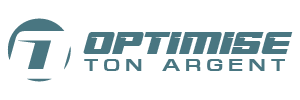Mortgage What You Need to Know
A mortgage is a type of loan that is used to finance the purchase of a home. This loan is secured by the property itself, meaning that if the borrower is unable to repay the loan, the lender can take possession of the property. Mortgages come with various terms and conditions, and it is important for potential homebuyers to understand all aspects of a mortgage before taking out one.
The first step in getting a mortgage is to determine how much you can afford to borrow. This is usually based on your income, credit score, and other financial factors. It is recommended to get pre-approved for a mortgage before starting your home search. This will give you a better idea of your budget and help you narrow down your options to homes that fit within your price range.
There are two main types of mortgages: fixed-rate and adjustable-rate. With a fixed-rate mortgage, the interest rate remains the same for the entire duration of the loan, typically 15 or 30 years. This is a good option for those who prefer consistency and stability in their monthly payments. On the other hand, an adjustable-rate mortgage (ARM) has an interest rate that can change over time, usually after a fixed period. This can result in lower initial payments, but the rate can increase in the future, making payments unpredictable.
Another important aspect of a mortgage is the down payment, which is the initial amount paid towards the purchase of the home. The larger the down payment, the lower the loan amount and monthly payments will be. A typical down payment is 20% of the home’s purchase price, but there are options for lower down payments, such as FHA loans for first-time homebuyers.
Once you have secured a mortgage, it is important to make timely and consistent payments to avoid defaulting on the loan. Your credit score will also be taken into consideration if you decide to refinance or take out additional loans in the future. It is important to maintain a good credit score to secure better interest rates and loan terms.
It’s also important to be aware of additional costs associated with a mortgage, such as closing costs, property taxes, and homeowner’s insurance. These costs can add up and should be factored into your budget when considering taking out a mortgage. It’s also recommended to shop around and compare different lenders to find the best rates and terms for your mortgage.
If you find yourself struggling to make alternative mortgage lenders payments, there are options available to help. For example, you can refinance to lower your monthly payments or apply for a loan modification to change the terms of your mortgage. It’s important to communicate with your lender and explore all available options before defaulting on your loan.
In conclusion, a mortgage is a significant financial commitment that requires careful consideration and research. It is important to understand all aspects of a mortgage, such as interest rates, down payments, and other associated costs. By educating yourself on the mortgage process and seeking professional guidance when needed, you can make informed decisions and find the best mortgage for your specific needs and financial situation.
